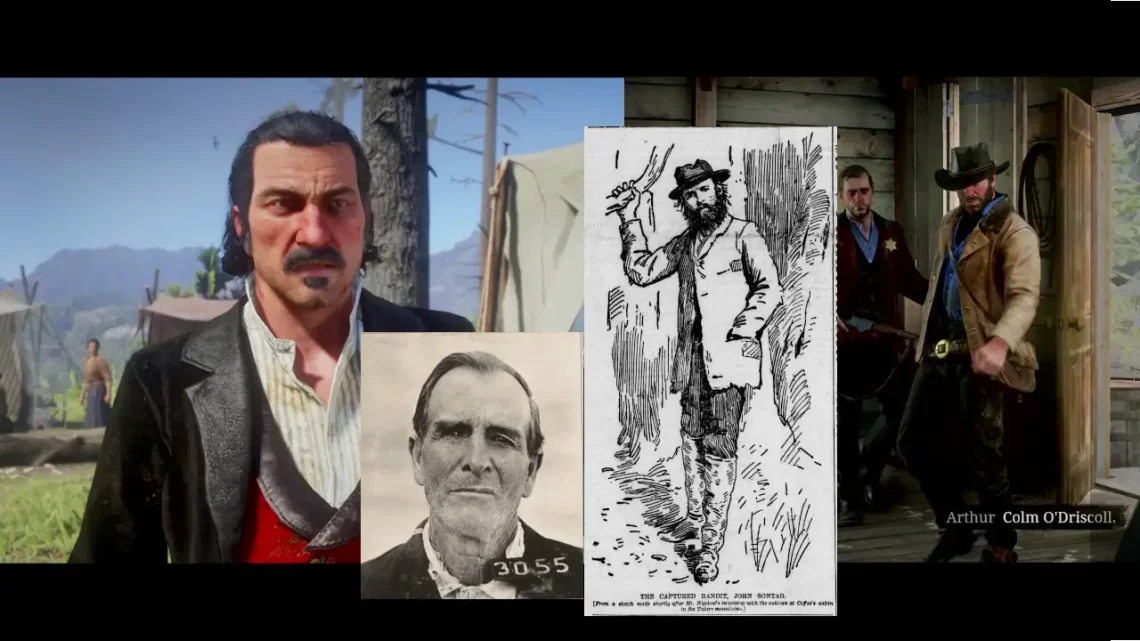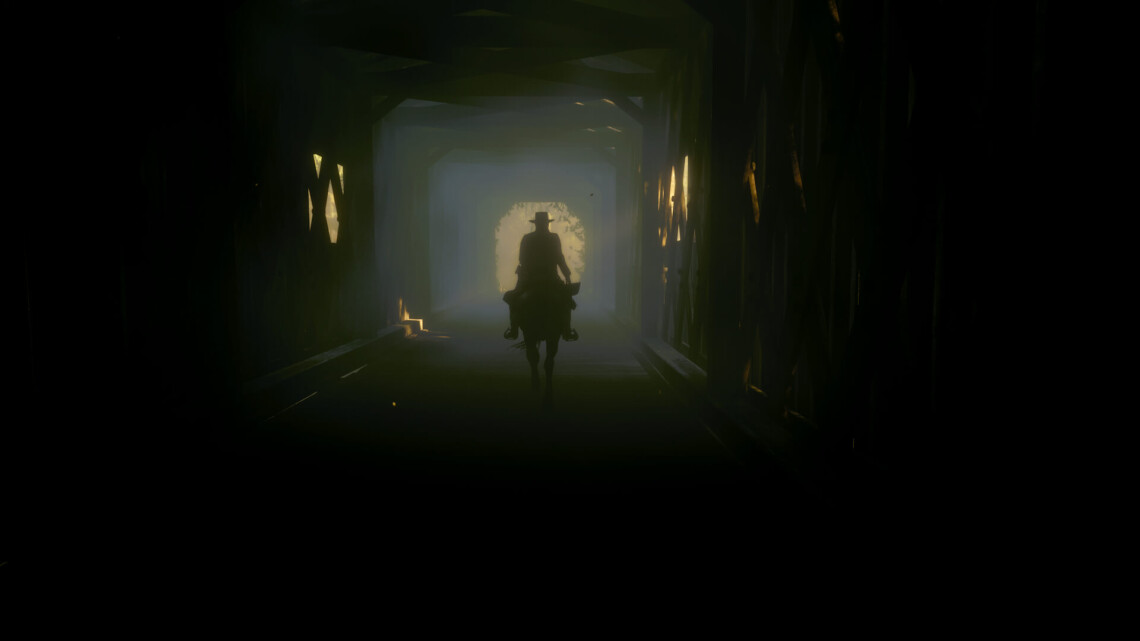The history of the Wild West is so enshrouded in myth, lies, obfuscations, half-truths, and rumor that once these delicate layers are peeled back, the definite facts they're mounded on seem scant enough to be scattered by a breeze — if they weren't weighted with blood and gold. Famous figures like outlaw Emmett Dalton and Wyatt Earp's wife, Josephine, intertwined the bare facts of their lives with legend. In the attempt to immortalize themselves, they erased themselves: it is not always clear whether something really happened, let alone how it happened or who did it.
If any aspect of RDR2 is perfect, it's the light. Rich and golden, the sunsets and dawns immerse the player in the game's themes — nostalgia for a lost world; wonder at nature — drawing on the senses to create poignant emotion. That light, itself, is an allusion to a 19th-century artist who in turn inspired one of the game's most charming minor NPCs.
Learn the story behind RDR2's Strange Statues, plus much more.
As should be apparent by now, RDR2’s use of literature ranges from deep and extensive to brief and glancing. Sometimes, the writers allude to a work broadly rather than dealing with its themes.
Frankenstein, by Mary Wollstonecraft Shelley, is the first science fiction novel. Famously, it was conceived as part of a contest between Shelley, her husband Percy, and their friends Lord Byron and John William Polidori. The group was staying in Geneva, where Byron rented a house called Villa Diodati. They were “delighted to learn that Milton had once stayed there, an astonishingly good omen for this group who by now saw themselves as fallen angels, like Milton’s Satan: rebellious and misunderstood” (Gordon 168).
During “A Fine Night of Debauchery,” Arthur Morgan grumbles to Josiah Trelawny, “This ain't Hamlet.” This is the writers begging us to notice that this is Hamlet. Happy to oblige. After the death of his father, Hamlet's uncle Claudius marries Hamlet's mother, Gertrude, and becomes king. One of the senses of discomfort this creates — the rottenness in the state of Denmark — is that Hamlet is of age. Under the rules of primogeniture, he should be king. Arthur is similarly infantilized.
Allusions to William Shakespeare's The Tempest are among the most obvious references in RDR2 — and yet, other allusions to the Bard's work are so subtle we almost have to guess at them. The game doesn't make direct allusion to King Lear or Othello, but the influence of those dramas is clear. Those plays feature a scheming villain spitting poison in the ear of a noble-but-tragically-flawed leader and a loyal but hapless child or follower who dies as a result of the leader's weakness: a plot that RDR2 reworks beautifully. However, this is an influence felt, not named. Other Shakespearean works are alluded to more directly. We’ll begin by discussing…
Finishing our journey through the intertwined Eden and Hell of RDR2.
As I began to discuss last week, the writers of RDR2 create a taut juxtaposition in the game by presenting the uncolonized natural world as Eden — but also basing each of the gang’s camps on a different aspect of hell, as imagined by Dante Alighieri in The Inferno.
Eden, in Red Dead Redemption 2, is the natural, unindustrialized world. However, the writers create a stark juxtaposition by using Dante’s Inferno — meaning “Hell” — to define and describe the Van der Linde gang’s journey through this Edenic world. No matter how beautiful their surroundings, their circumstances make their environments punishing. As Milton’s Satan says, “Which way I fly is hell; myself am hell” (IV.75). The gang brings their misery with them.









